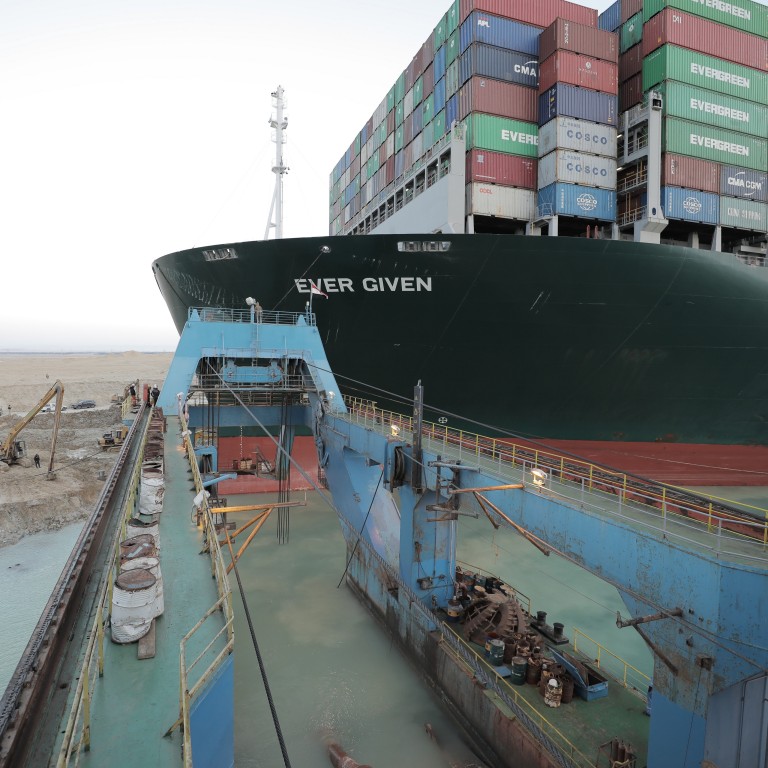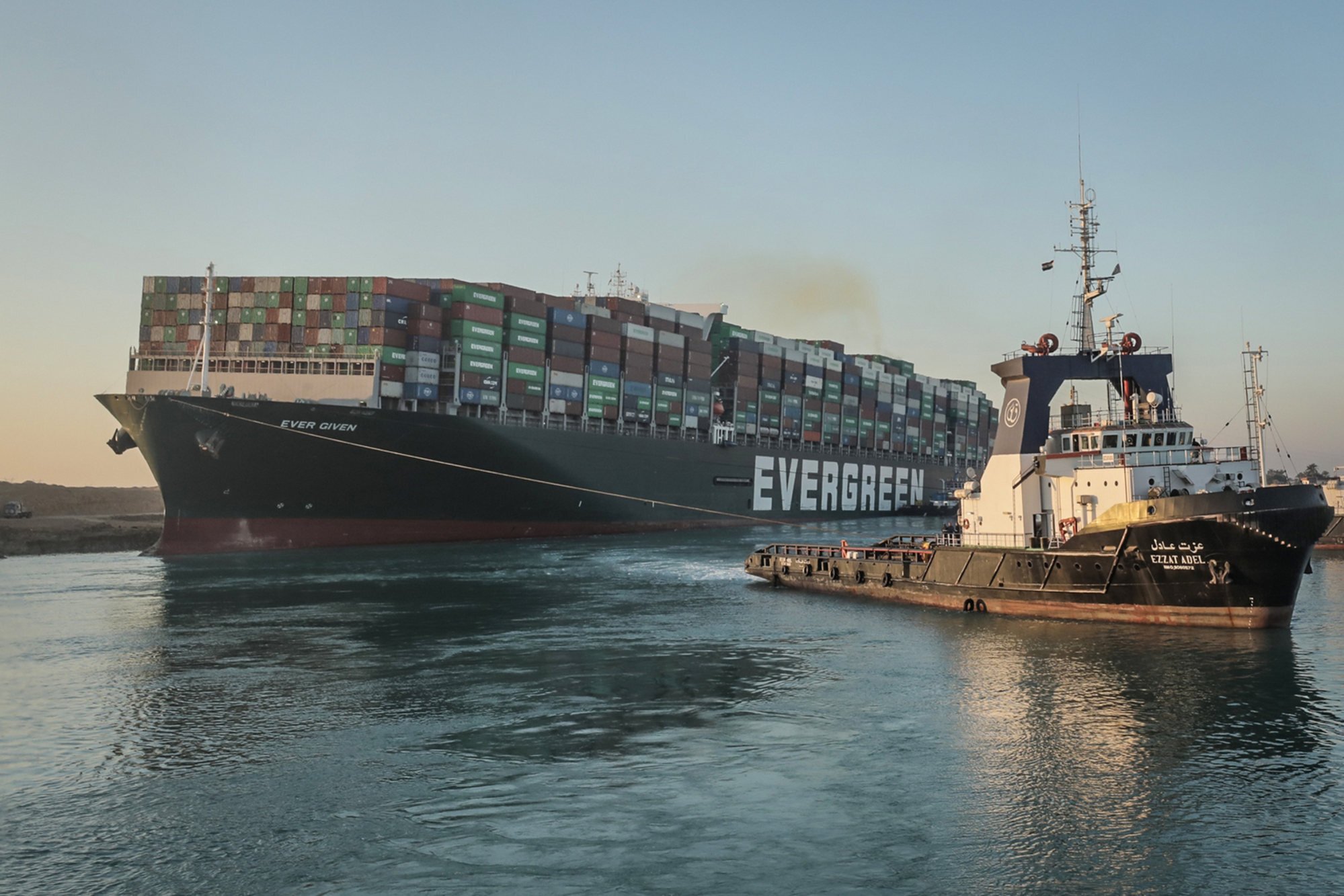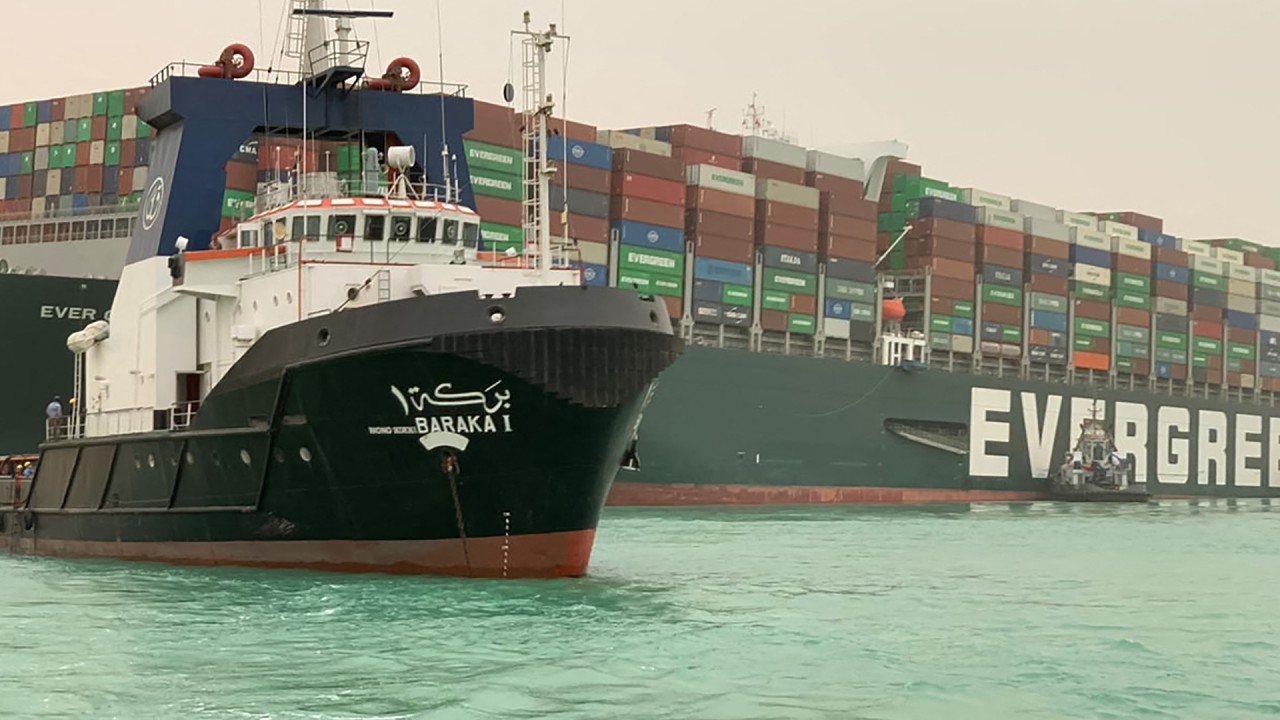
Suez Canal ship Ever Given freed, ending week-long crisis in one of the world’s busiest trade routes
- Ever Given became jammed diagonally across a southern section of the canal in high winds early last Tuesday
- The obstruction created a massive traffic jam, holding up US$9 billion each day in global trade and straining supply chains
Salvage teams on Monday set free a colossal container ship that has halted global trade through the Suez Canal, bringing an end to a crisis that for nearly a week had clogged one of the world’s most vital maritime arteries.
After hauling the fully laden 220,000-ton vessel over the canal bank, the salvage team was pulling the vessel toward the Great Bitter Lake, a wide stretch of water halfway between the north and south end of the canal, where the ship will undergo technical inspection, canal authorities said.

Satellite data from MarineTraffic.com confirmed that the ship was moving away from the shoreline toward the centre of the artery.
“We pulled it off!” said Peter Berdowski, CEO of Boskalis, the salvage firm hired to extract the Ever Given, in a statement. “I am excited to announce that our team of experts, working in close collaboration with the Suez Canal Authority, successfully refloated the Ever Given … thereby making free passage through the Suez Canal possible again.”
The obstruction has created a massive traffic jam in the vital passage, holding up US$9 billion each day in global trade and straining supply chains already burdened by the coronavirus pandemic.
It remained unclear when traffic through the canal would return to normal. At least 367 vessels, carrying everything from crude oil to cattle, have piled up on either end of the canal, waiting to pass.
Data firm Refinitiv estimated it could take more than 10 days to clear the backlog of ships. Meanwhile, dozens of vessels have opted for the alternate route around the Cape of Good Hope at Africa’s southern tip – a 5,000km detour that adds some two weeks to journeys and costs ships hundreds of thousands of dollars in fuel and other costs.
It wasn’t clear whether the Ever Given, a Panama-flagged, Japanese-owned ship hauling goods from Asia to Europe, would continue to its original destination of Rotterdam or if it would need to enter another port for repairs.
Ship operators did not offer a timeline for the reopening of the crucial canal, which carries over 10% of global trade, including 7 per cent of the world’s oil. Over 19,000 ships passed through last year, according to canal authorities.
Millions of barrels of oil and liquefied natural gas flow through the artery from the Persian Gulf to Europe and North America. Goods made in China – furniture, clothes, supermarket basics – bound for Europe also must go through the canal, or else take the detour around Africa.
The unprecedented shutdown had threatened to disrupt oil and gas shipments to Europe from the Middle East and raised fears of extended delays, goods shortages and rising costs for consumers.
The salvage operation successfully relied on tugs and dredgers alone, allowing authorities to avoid the far more complex and lengthy task of lightening the vessel by offloading its 20,000 containers.
Earlier on Monday, Egyptian President Abdel-Fattah el-Sisi hailed the “success” of an operation to unwedge the ship.
“Today, Egyptians have been successful in putting to an end the crisis of the stranded ship in the Suez Canal, despite the enormous complexity surrounding the process,” Sisi wrote on Twitter.
Additional reporting by Agence France-Presse


